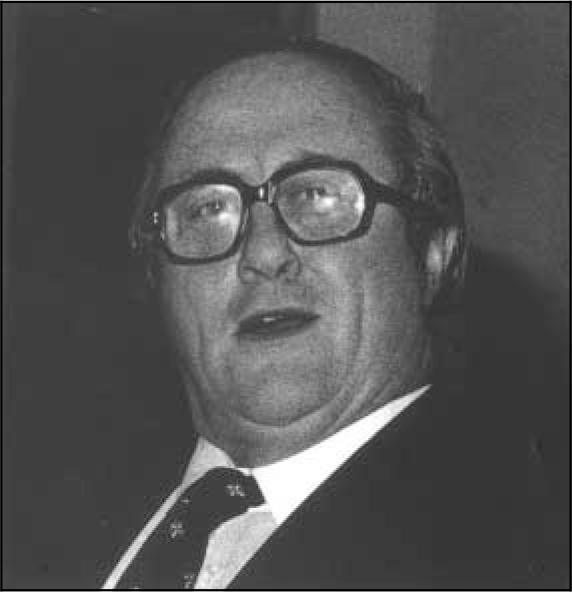The death of Eddy Harvey-Smith brings to a close the life of one of psychiatry's more colourful personalities who in the 1960s combined his love of lively debate with his fierce disapproval of the government's treatment of junior hospital doctors by chairing the Hospital Junior Staff Group Council. In this national role, Eddy fought vigorously for his colleagues to make known to the Ministry of Health and the public at large that the long hours, low pay and wretched accommodation of junior hospital doctors were unacceptable. He held the post from 1963 to 1968 and during his tenure made a massive contribution to the improvement of working conditions for doctors, an improvement that his successors were able to build on in later years.
Born in 1929, Eddy attended Latymer Upper School, where he was Vice-Captain, and after National Service in the Royal Signals, he went up to St John's College, Cambridge, where he graduated MB BChir in 1956. He gained the MRCP (Lond) in 1962. The academic aspect of life appealed less – except in mild panic when exams threatened – than friendly argument and discussion, which better suited his companiable personality and his wide-ranging mind. He was also very interested in sport, specifically soccer and squash, and it was while playing soccer for St John's College that he suffered a serious fracture of his leg. Never one to be held back, he became a familiar figure cycling to lectures with his full leg plaster resting on the handlebars. Later he managed to borrow a motorised wheel-chair, which he drove at ferocious speed through the streets of Cambridge, offering lifts to young ladies who caught his eye.

His clinical studies and early house appointments were spent at Westminster Hospital and in Kent. As registrar he held posts at Hammersmith Hospital and at Westminster Hospital before moving to the Maudsley. He passed the DPM (Lond) in 1966, the MRCPsych in 1972 and was awarded FRCPsych in 1982. In 1968 he was appointed Consultant Psychiatrist at the Croydon and Warlingham Group of Hospitals where he was to spend the next 26 years. Pursuing his political interests he was Chairman of the Psychiatric Division from 1979 to 1985. Eddy was Chairman of the Croydon District Medical Committee and on the Medical Executive Sub-Committee from 1985 to 1990, and was the Consultant Representative on the Croydon Area Health Authority. He examined for the LRCP MRCS and for many years acted as a physician for BUPA. Indeed, he preferred to think of himself as a physician with a deep interest in psychiatry. Eddy was active in establishing the Purley Day Hospital, a development that was in the vanguard of the early movement towards community care.
Eddy always enjoyed a lively relationship with his managerial colleagues. Their prime function, in his opinion, remained that of selecting the colour of the paint. His withering wit also translated itself magnificently to a prodigious output of correspondence, which not infrequently found its way into the national press and the Secretary of State for Health's private office.
After retirement from the NHS in 1994, he continued to do locum work and see patients privately well into his seventies. It was at Hayes Grove Priory Hospital that his irreverence for authority came to the fore. His discussion groups over the lunch table, followed by a game of pool, and his tendency to see an occasional patient in the garden provoked a vocal response from management who did not care to have their hospital treated as a country club.
His later years were clouded by the onset of dementia and he was lovingly cared for at home by his daughter, Caroline and two sons, Andrew and Mark, until he had to move across the road to Kingston Hospital. ‘I’m afraid it's Alzheimer's, old boy,’ he observed in one of his lucid moments.
He died on 28 January 2007 and will be sorely missed.



eLetters
No eLetters have been published for this article.